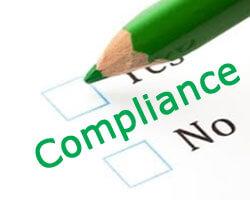

When it comes to software audits, Microsoft have led the way. However, we have recently seen an increase in other vendors following suit and have seen our first VMware Audit.
As per section 5 of the VMware End User License Agreement, your organisation is required to complete the questionnaire that is provided. If this exercise is not completed accurately and in a timely fashion, then VMware may perform a full audit as a follow up to the notification received.
The VMware audit is conducted by the Global License Advisory Services department, to help facilitate customer compliance in line with VMware’s software licensing terms and conditions. Depending on the results, there may be a need to discuss entitlement and deployment management options at the end of the self-audit process.
The information for the audit is exported from vCenter and includes for example; Machine/Host Names, Physical Processor (CPU Count) plus product information including version and edition.
Some things to consider are; how up to date is the information in your vCenter and does it match with the licenses held on your MyVMware portal? Are license keys being used correctly for multiple locations? For example, do you have a single license key for say 8 CPUs for vSphere Enterprise Plus that are used for more than one location? Can you provide the evidence to show licenses (keys) aren’t being used more than once?
You may be interested in other recent VMware articles we have published:
- Country of Use vs Country of Purchase https://lnkd.in/ed-VsXQ
- Splitting a vSphere license https://lnkd.in/eTGyzD7
At The SAM Club, we work with our clients to ensure their MyVMware portal contains folders for the Host Clusters and the license keys assigned correctly. This can then be mirrored back to vCenter to help with the overall management of your VMware licenses. If you would like more information or an internal review of your VMware estate then please contact us at info@thesamclub.co.uk
